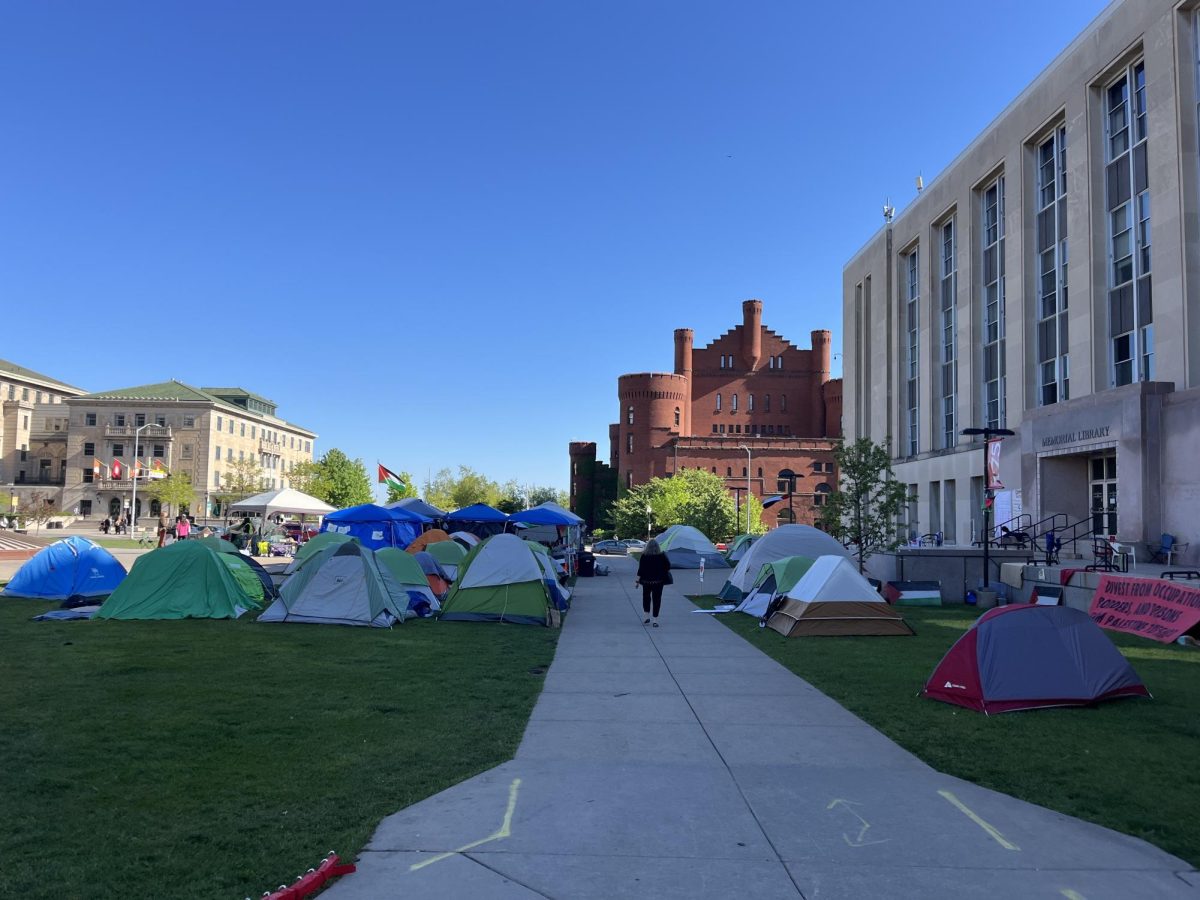Wind Up Dolls, a female comedy troupe from Milwaukee, performed Thursday night in Bascom Hall to the sound of laughter from an audience of UW-Madison students.
The group was invited to the university in honor of Sexual Assault Month as another way of approaching issues about sexual assault and women’s rights. Erica Tietz, UW student and head of the university’s Campaign for Campus Safety, said the Wind Up Dolls’ use of humor was refreshing.
“Sexual assault is a difficult thing to deal with, but I thought this would be a way for us to laugh while learning,” Tietz said.
Wind Up Dolls came together seven years ago as a group of female college friends who wanted to use theater to explore social issues from a feminine point of view.
“We started creating pieces that explored things like body image,” said troupe member Kathleen Williams. “We’re looking at humanity through a female lens. Although we may be an all-female group, we don’t appeal only to women. Our issues pertain to all of humanity.”
Group member Karen Ambrosh stressed the effectiveness of using the group’s particular style of using humorous skits to speak out.
“We’re telling stories through a mixture of humor and seriousness to make people really think,” Ambrosh said. “It’s a way that theater can be used to teach.”
Wind Up Dolls try to address a variety of issues in their skits.
“Body image is a classic topic,” member Ruth Monhollen said. “Also the media, current events, the depiction of women in the media ? basically anything that really pisses us off or intrigues us.”
The troupe entertained the audience with a variety of social commentaries told through different styles, from soliloquy to pretend infomercials.
One of the first skits of the evening introduced the audience to the female perspective of the performances.
“Sometimes I wish I had been born a man,” Boulet said. “I wish this when men in bars are staring at me because of the length of my skirt, and the women are looking daggers at me because of the length of my skirt. Sometimes I think being a man would just be so much easier. But in the end, I’d rather wear a scarlet letter than a letter jacket.”
One skit, presented as an infomercial selling “inner beauty,” criticized society’s obsession with physical appearance and mocked interview questions at beauty pageants.
“You can get ‘intellectual inner beauty,’ which makes you sound smart,” Williams said. “And then there’s ‘humanitarian inner beauty,’ which makes you sound like you care a lot more than you really do.”
In one satirical skit, Wind Up Dolls addressed critics of the women’s movement. Two of the women spoke as men in a female-dominated society fighting for justice.
“We need to take a look at how men are treated in the media,” Ambrosh said. “I mean, a man can still walk into an office and be judged by how low his tie is hung.”
Aside from using humor to make their messages heard, Wind Up Dolls had serious skits with very serious subjects.
In another skit, Mulhollen spoke as one female volunteer in a battered women’s shelter trying to convince a discouraged co-worker to continue volunteering. Mulhollen described an incident wherein a woman being beaten by her husband was approached by a young girl who told the man to stop.
“There this girl stood, holding her hands out to the woman,” Mulhollen said, “and every time I remember that, I know that there’s something bigger out there than the hate and the violence that we do to each other.”
The main objective of the Wind Up Dolls performance was to encourage people to be aware of social problems and speak out against them, the group members said. Mulhollen vocalized this goal in one of her skits.
“I look around and I see women and men and women drowning under a sea of hands–the hand of our history, of our society. But sometimes I see other hands clawing and grasping to break free, and that’s when I say, ‘I will not be silent,'” Mulhollen said.













